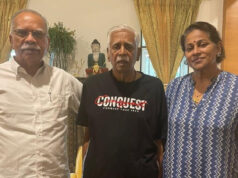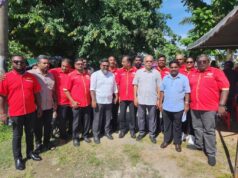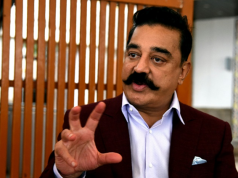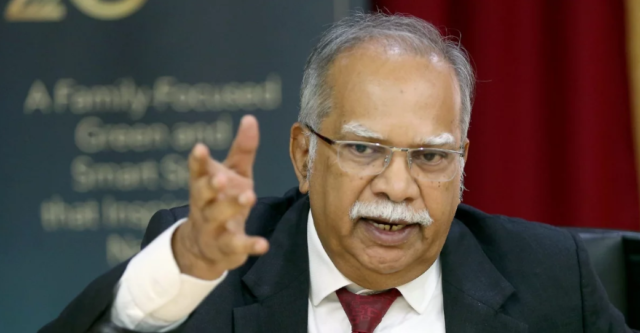 COMMENTS BY YB PROF DR P.RAMASAMY, DEPUTY CHIEF MINISTER II, PENANG ON “TAMIL CULTURE AND HINDUISM ARE INEXTRICABLY RELATED”
COMMENTS BY YB PROF DR P.RAMASAMY, DEPUTY CHIEF MINISTER II, PENANG ON “TAMIL CULTURE AND HINDUISM ARE INEXTRICABLY RELATED”
I am not sure what Mohan Shan, the president of Malaysian Hindu Sangam (MHS), means by Hinduism. Is he talking about the right-wing Hinduism espoused by the Hindutva forces in India, or more syncretic forms of the religion evident in the southern states of India?
In the Malaysian Indian or Tamil context, the variant of Hinduism is not the Hindutva version, but a variant that is defined by the Tamil or Dravidian culture over long years of history.
It makes no sense for Mohan Shan to talk about the spread of Dravidian ideology in Tamil schools in Malaysia.
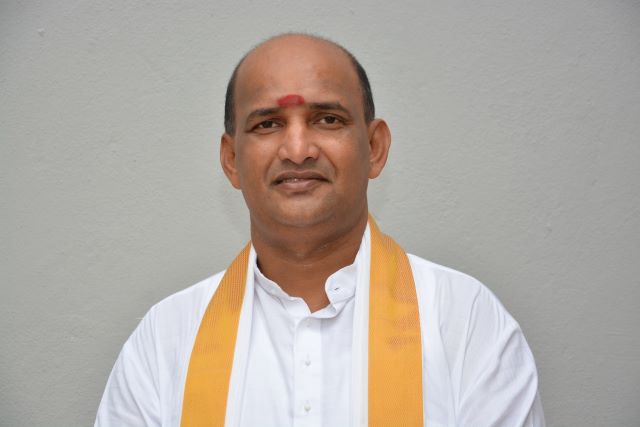
Since Dravidian or Tamil culture defined the nature and form Hindu practices, their opposition to one another do not exist in the first place.
The threat of Dravidian ideology displacing Hinduism does not make sense because there is no unholy alliance between the both.
The social reformist ideas of E.V. Ramasamy or Periyar were more about bringing about rational thinking amongst Hindus rather than weakening or diluting their religious variant.
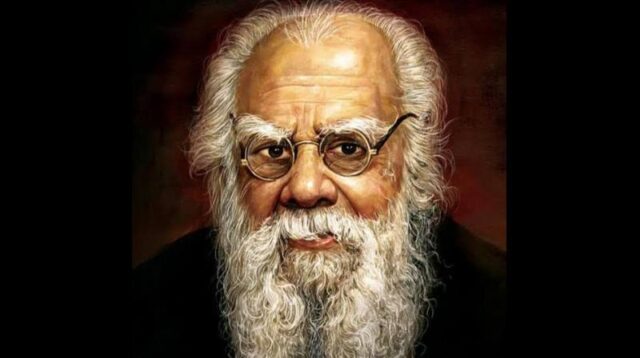 Mohan Shan also asserted that because of the spread of the Dravidian ideology, Tamils are now questioning whether Ponggal or the harvest festival is religious or cultural event.
Mohan Shan also asserted that because of the spread of the Dravidian ideology, Tamils are now questioning whether Ponggal or the harvest festival is religious or cultural event.
It is perfectly alright for Tamils to consider them as either cultural or religious or both.
I would like to remind Mohan Shan that the greatest danger to Hinduism in the country is not in the spread of the Dravidian ideology.
In fact, there is no spread at all, as the Tamil culture is very much interwoven with the Hinduism, at least the Tamil variant.
Hindu and non-Muslim religions face threat from the extreme racial and religious forces having their base in extremist racial and religious organisations. Yet the MHS refuses to acknowledge this but seeks to sow divisions within the Indian or Tamil community in Malaysia.
There is no necessity to spread the Dravidian ideology as it forms the basis of Tamil culture which in turn has defined the nature of the Hindu religion.
The majority of Tamils in Malaysia are devout Hindus, but they also take pride in the fact that their religion has roots Tamil or Dravidian culture that predated the spread of Hinduism.
In fact, Hinduism and Dravidian culture coexists side by side without any contradiction.
Tamils take pride in the fact that their history goes back time immemorial, even before the onset of Hinduism associated with Brahminical or Aryan ascendancy in parts of what is known now as India.
Tamil culture and Hindu religion are closely interwoven making it difficult to extricate one from the other.
What is practiced as Hinduism among Tamils is very much rooted in the cultural experience of the Dravidian race.
Long before the Aryan or Indo-European invasion and displacement of the Indus Valley civilisation, there were religious practices among the proto-Dravidians that revolved around the worship of Siva.
In parts of southern India, Hinduism simply grafted on the prevailing cultural practices of the Tamils or collectively called as Dravidians.
I am not sure how Tamils by recognising the contributions of social reformers like Ramasamy or Periyar can forsake their religion.
Even the religious practice of Tamils is very based on the identification with their respective cultural gods or Tamil gods.
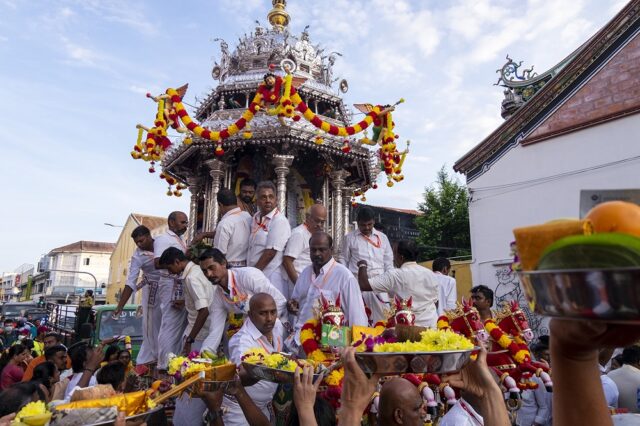 The worship of Lord Murugan during the festival of Thaipusam is an example of the close integration between their Dravidian culture and religion.
The worship of Lord Murugan during the festival of Thaipusam is an example of the close integration between their Dravidian culture and religion.
Does the recognition of Tamil god Lord Murugan negate the religious affiliation of Tamils as Hindus?
There is definite cultural/religious difference as how Hinduism is practiced in different parts of India, especially between the south and the north.
Negating the social reformism of Dravidian philosophy means negating Tamil identity, the defining feature of the Hindu religious variant amongst Tamils.
Tamil identity is a complex one that cannot be reduced to either culture or religion.
The concept of totality is missing in the analysis of organisations such as the MHS and others seeking to drive a wedge between culture and religion amongst the Tamils in the country.
In fact, Hinduism among Tamils or South Indians is an enmesh of both religion and culture.
Tamils might be staunch Hindus as they have defined themselves in particular social and cultural contexts, but they are not willing or will defiantly reisist attempts to impose Hinduism as defined by others.
In this respect, MHS cannot mechanically impose the North Indian variant of Hinduism or the Hindutva ideology on Tamils in Malaysia in the name of defending Hinduism.
It is unfortunate that the MHS that tries to speak on behalf of Hindus in the country seems not understand the cultural and emotional derivatives of the Tamils.
Mohan Shan despite defending his reactionary idea of Hinduism fails to spell out what he means by Hinduism amongst the Tamils in this country.
I might be critical of Tamil Nadu Dravidian politics, but will admit the fact that it is because of this ideology that Tamils have been able to govern the state without being overwhelmed by the Hindutva forces.
Maybe Mohan Shan should explain as to why Tamils being strong supporters of the Dravidian political parties have remained staunch Hindus over the years.
How come this nativist ideology has not impacted negatively on the practice of Hinduism amongst the Tamils?
On the contrary, despite the strong rationality in the Dravidian ideas, it is not opposed to the legends and mythical traditions of Hinduism.
MHS must first explain the conundrum about how Hinduism coexists with cultural notions of the Dravidian philosophy.
In other words, MHS is barking up the wrong tree.




